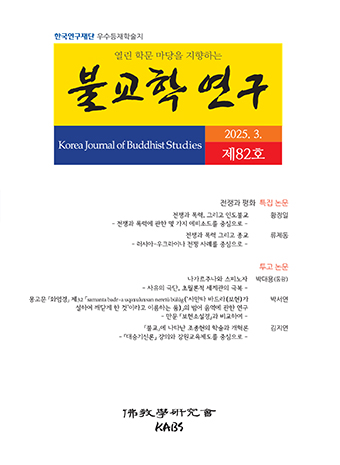Abstract
References
Sorry, not available.
Click the PDF button.
Information
Since the concept of Buddhist social welfare is the starting point of securing its identity by prescribing practical ideas of what it is and does, it's very critical to define its concept. Two of the most common ways to define a concept are concept formation and concept reconstruction; the former involves creating a new concept, while the latter collecting representative concepts already formed and extracting essential characteristics out of them.In this study the method of concept reconstruction was adopted to collect various concepts of Buddhist social welfare and to reorganize the essential meanings of them, thus reconstructing the concept of Buddhist social welfare. Those efforts resulted in the concepts of Buddhism being specialized in welfare idea, subject of action, social system and organization, and self-realization. And the concepts of social welfare turned out to have become specialized in the areas of private social welfare, acts of Buddhist welfare activities, and social efforts for happiness pursuit by social members.By organizing the conceptual characteristics of Buddhism and social welfare as above, the study reconstructed the concept of Buddhist social welfare as 'each individual Buddhist and the Buddhist organization, which was a social organization based on the welfare ideas of 'Enlightment' and 'salvation of mankind' conduct activities of private social welfare whichmade social efforts for the sake of happiness pursuit of social members and ultimate self-realization'.
Click the PDF button.
- Publisher :Korean Association of Buddhist Studies
- Publisher(Ko) :불교학연구회
- Journal Title :Korean Journal of Buddhist Studies
- Journal Title(Ko) :불교학연구
- Volume : 12
- Pages :221~240


 Korean Journal of Buddhist Studies
Korean Journal of Buddhist Studies






